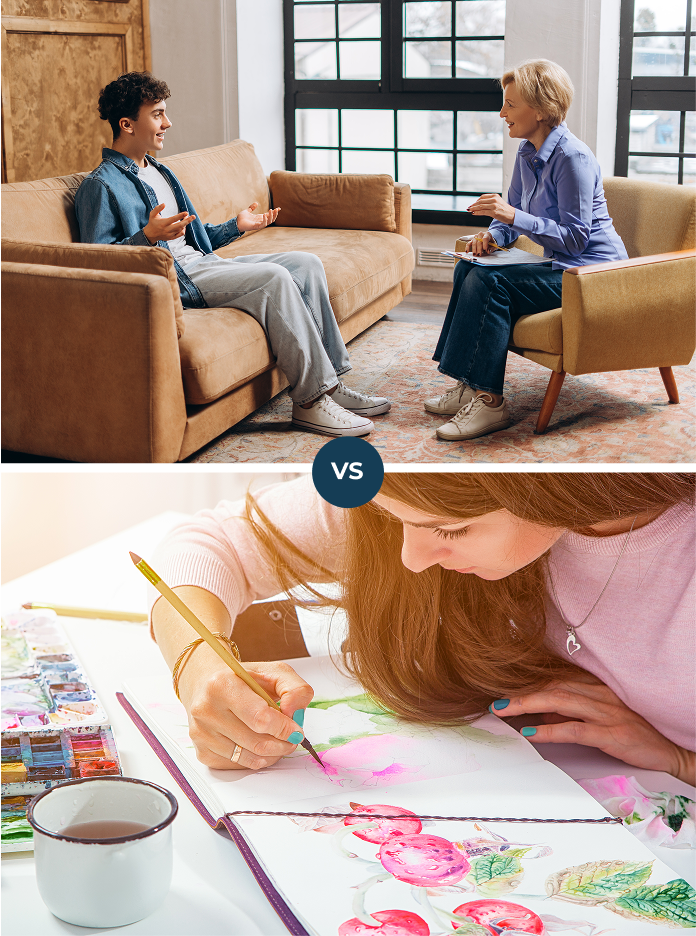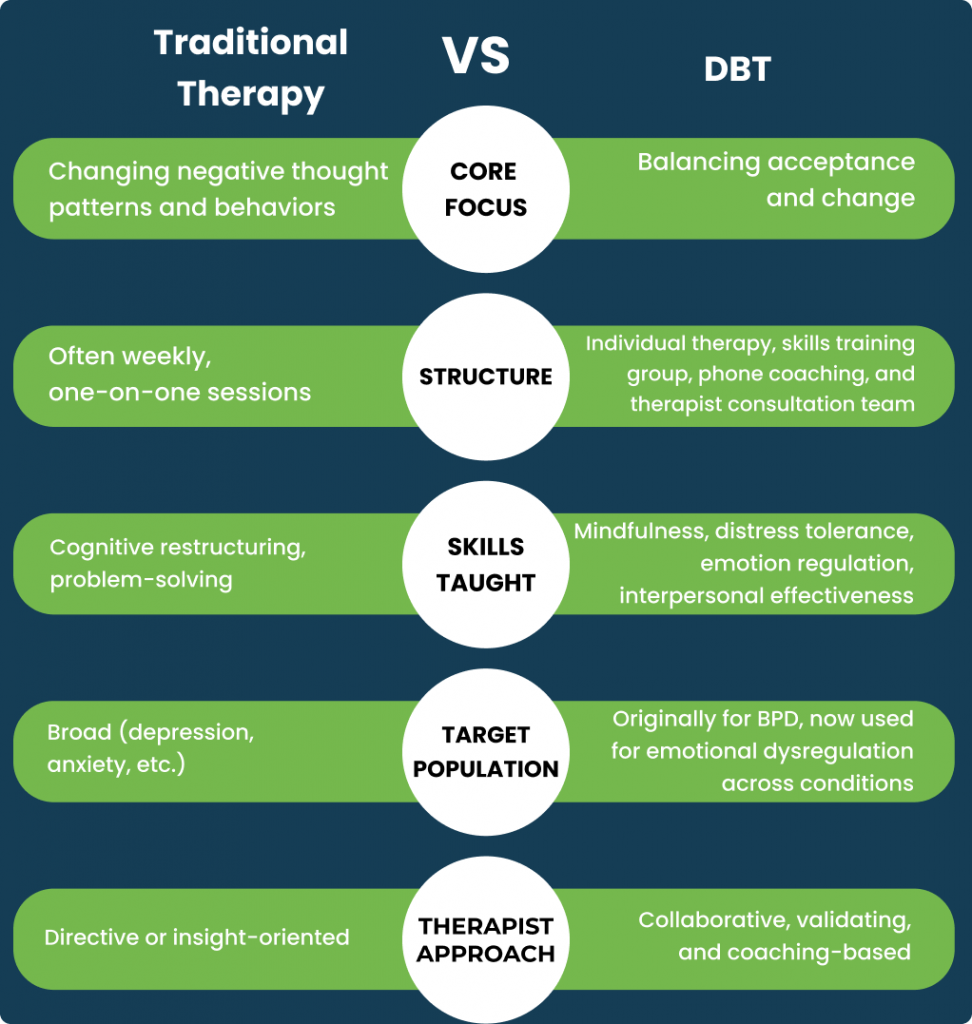
ABOUT OUR DBT ART THERAPY PROGRAM
This comprehensive program is designed for adolescents aged 13-17
2x
A Week
Virtually
Online

ABOUT OUR DBT ART THERAPY PROGRAM
This comprehensive program is designed for adolescents aged 13-17
2x
A Week
Virtually
Online
Can DBT Help Your Teen?
DBT Art Therapy can be helpful for individuals experiencing the following symptoms
 Anxiety and Depression
Anxiety and Depression
 Chaotic Relationships
Chaotic Relationships
 Dissociative Disorders
Dissociative Disorders
 Borderline Personality Disorder
Borderline Personality Disorder
 Impulsive Urges and Behaviors
Impulsive Urges and Behaviors
 Emotional Dysregulation
Emotional Dysregulation
 Suicidal or Self Harm Behavior
Suicidal or Self Harm Behavior
 Past Trauma or Post Traumatic Stress Disorder
Past Trauma or Post Traumatic Stress Disorder
 Substance Use Disorders or Addiction
Substance Use Disorders or Addiction
What is DBT?
Dialectical Behavior Therapy (DBT)
is a proven type of therapy that helps teens learn how to manage strong emotions, handle stress in healthy ways, and build better relationships. It combines practical tools for coping (like those used in traditional therapy) with mindfulness — teaching teens how to stay calm and focused, even during tough moments.
DBT is different because it’s more structured and hands-on. It includes individual therapy, group skills sessions, and real-life coaching support, so your teen can practice what they learn in everyday situations.
DBT gives teens the tools they need to handle life’s challenges — and gives parents peace of mind knowing their child is learning healthy, lasting skills for emotional balance.
 90.3% of DBT adolescents had no suicide attempts vs. 78.9% in tradtional control groups.
90.3% of DBT adolescents had no suicide attempts vs. 78.9% in tradtional control groups.
 56.9% of DBT participants had no non-suicidal self-injury vs. 40.0% in traditional controls.
56.9% of DBT participants had no non-suicidal self-injury vs. 40.0% in traditional controls.
 75.6% completion rate for DBT vs. 55.2% for individual/group supportive therapy.
75.6% completion rate for DBT vs. 55.2% for individual/group supportive therapy.


How Does Art Work With DBT?
DBT Art therapy gives teens a safe and creative way to express emotions they might not be able to put into words. Through drawing, painting, or other forms of art, they can explore feelings like anger, sadness, or anxiety in a healthy, nonjudgmental space. This process helps them better understand themselves and develop coping skills for managing strong emotions.
What Tools/Skills Can My Teen Learn?
![]()
Staying Calm
![]()
Understanding Feelings
![]()
Self Acceptance
![]()
Distress Tolerance
![]()
Handling Stress
![]()
Creative Expression
![]()
Emotional Regulation
![]()
Building Confidence
![]()
